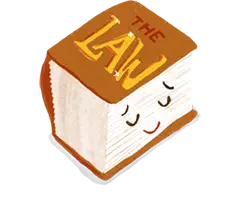Topic
Victim support
This page contains different parts of laws about Victim support, within the topic of Crime and justice.

Important laws about Victim support
Court Martial Act 2007
Rules to protect people in court cases about sexual violation
42: Special provisions in cases involving sexual violation
Court Martial Act 2007
Rules to Help with Changes to Military Law
Schedule 1AA: Transitional, savings, and related provisions
Real Estate Agents Act 2008
Who is on the Committee to look at complaints?
77: Constitution of Committees for consideration of matters before it
Independent Police Conduct Authority Act 1988
The Authority's jobs include looking into complaints and unfair things the Police do.
12: Functions of Authority
Independent Police Conduct Authority Act 1988
The Police Commissioner must report to the Authority if a Police employee causes death or serious harm.
13: Duty of Commissioner to notify Authority of certain incidents involving death or serious bodily harm
Independent Police Conduct Authority Act 1988
What happens when you make a complaint to the Independent Police Conduct Authority
17: Action upon receipt of complaint
Independent Police Conduct Authority Act 1988
What happens next with your police complaint
19: Subsequent powers in relation to complaint
Independent Police Conduct Authority Act 1988
The Police Commissioner must report to the Authority on how they handled a complaint.
20: Duty of Commissioner to report to Authority on Police investigation of complaint
Sentencing Act 2002
Why the court punishes or helps people who commit crimes
7: Purposes of sentencing or otherwise dealing with offenders
Sentencing Act 2002
Paying back for harm you caused: fixing damage or helping someone you hurt
32: Sentence of reparation
Sentencing Act 2002
Reports to help decide how much money offenders should pay to fix the harm they caused
34: Reparation reports
More laws about Victim support
About this project
What is this project?
This project is an experiment to take difficult language, and make it easier to read and understand for everyone.
How do we do this?
What's our process for taking the law and turning it into plain language?
Why is the law written like it is?
Laws are often hard to read. They use a lot of words and language we don't usually use when we talk.
Should we use AI for this?
What are the good and bad sides of using AI?
Is this information the actual law?
We hope that this information will help people understand New Zealand laws. But we think that it's important you talk to someone who understands the law well if you have questions or are worried about something.
You can talk to Community Law or Citizen's Advice Bureau about your rights.
Remember that AI can make mistakes, and just reading the law isn't enough to understand how it could be used in court.
You can talk to Community Law or Citizen's Advice Bureau about your rights.
Remember that AI can make mistakes, and just reading the law isn't enough to understand how it could be used in court.




